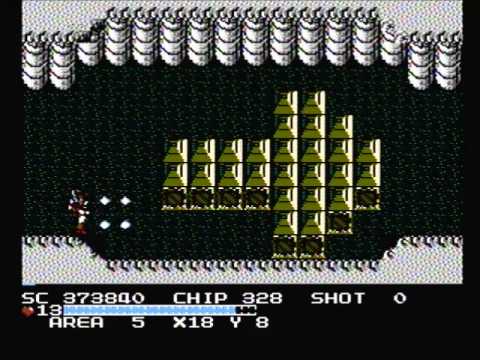Retro reflections by Nick H.
One of the really cool things my dad did for me as a kid was rent me a new NES game just about every weekend. It was a cheap way to play a lot of different games, and I’d get them finished, too, as video games had a tendency to be quite short back then when compared to today. The idea of blowing through a video game in a couple of hours seems pretty far-fetched nowadays, but back then it was a much more likely.
One of the titles my dad rented me was called The Guardian Legend. I will admit that I knew almost nothing about the game. It had sort of an odd, almost eerie cover with a pair of creepy snake-like eyes peering out over a blasted and barren orange-yellow landscape. Back then your only options to figure out if you were going to like a game or not was the cover art, what was on the back of the box and the occasional video game magazine. I could vaguely recall something about it generally being well-regarded from a presentation perspective, but picked apart for various other reasons.
To read on, please log in with your DDNet Premium account:









